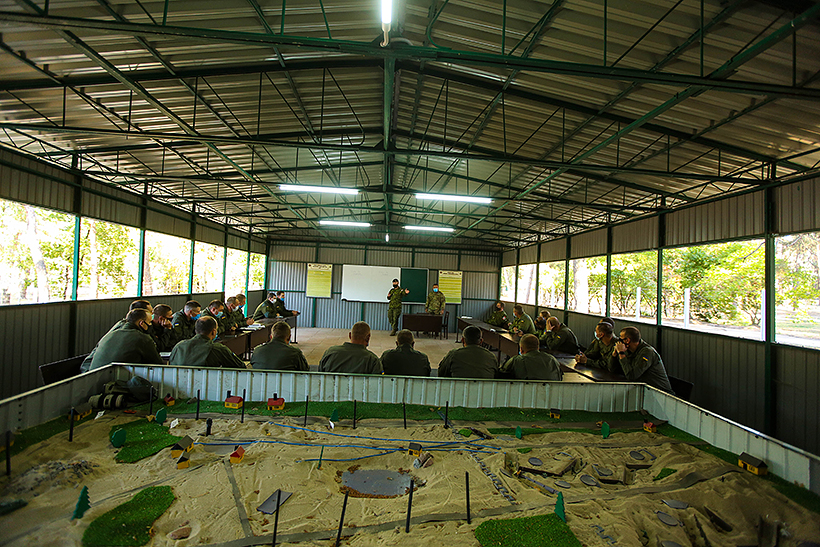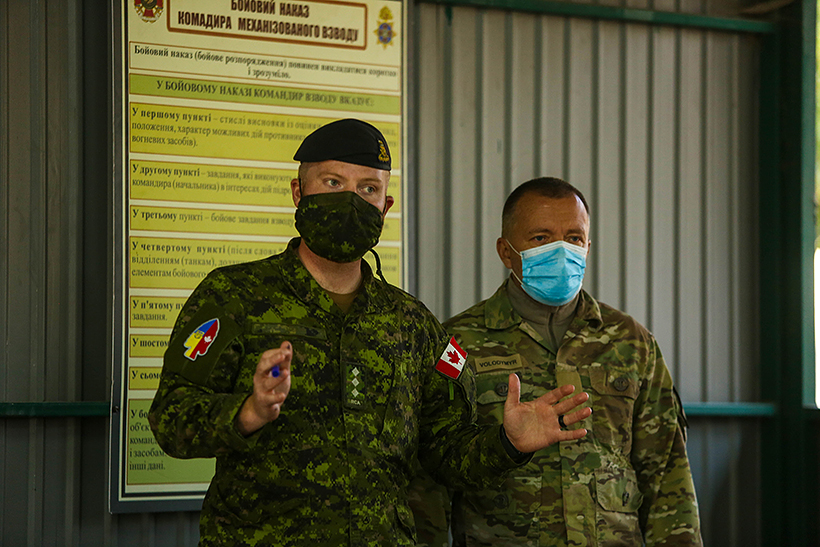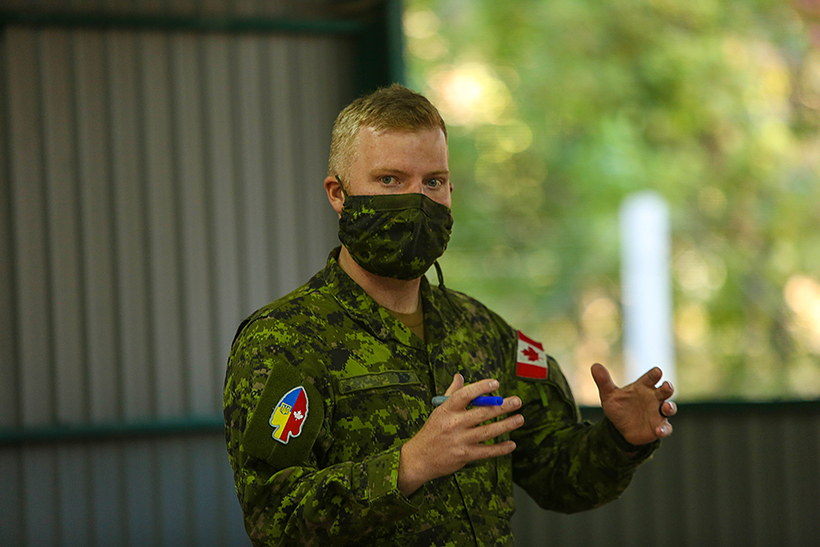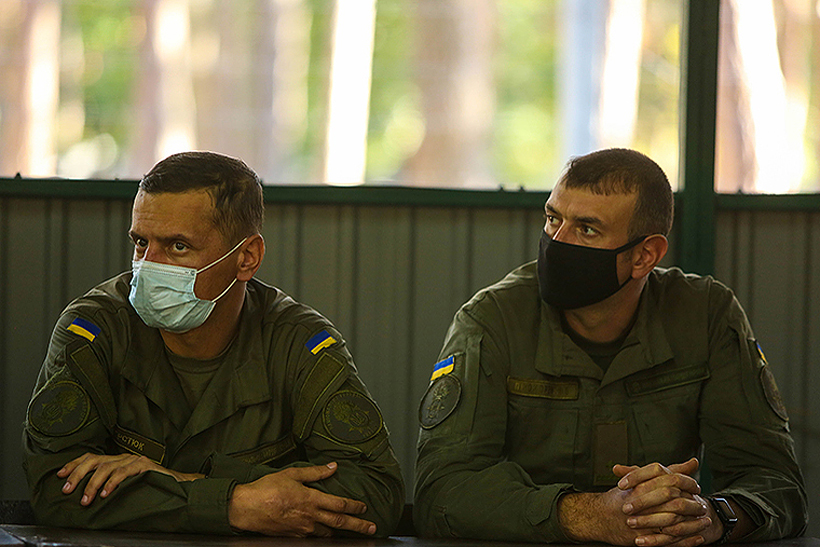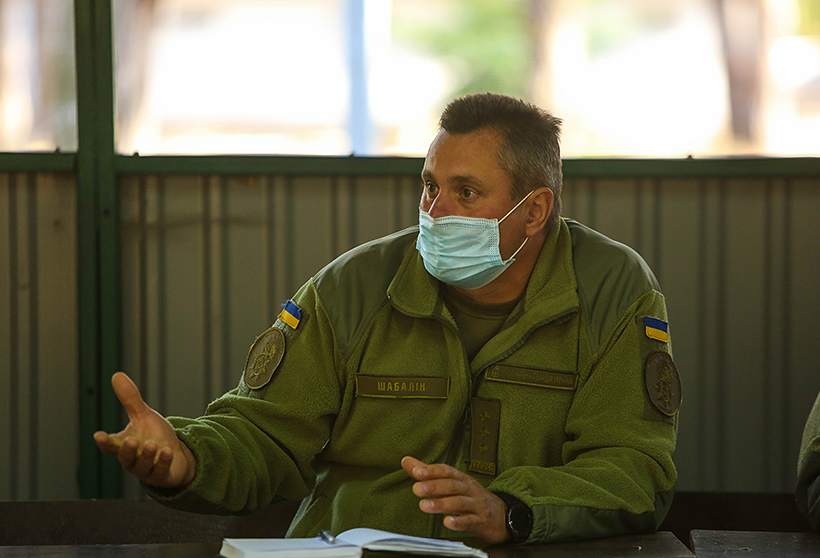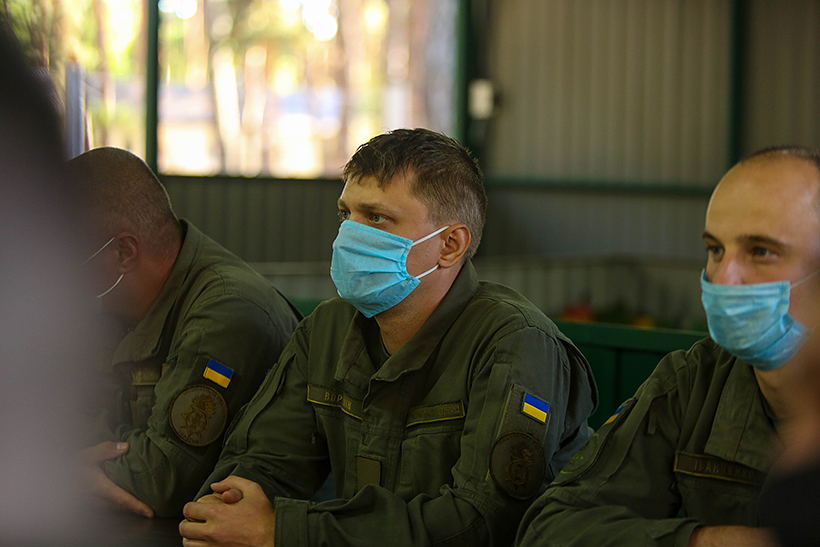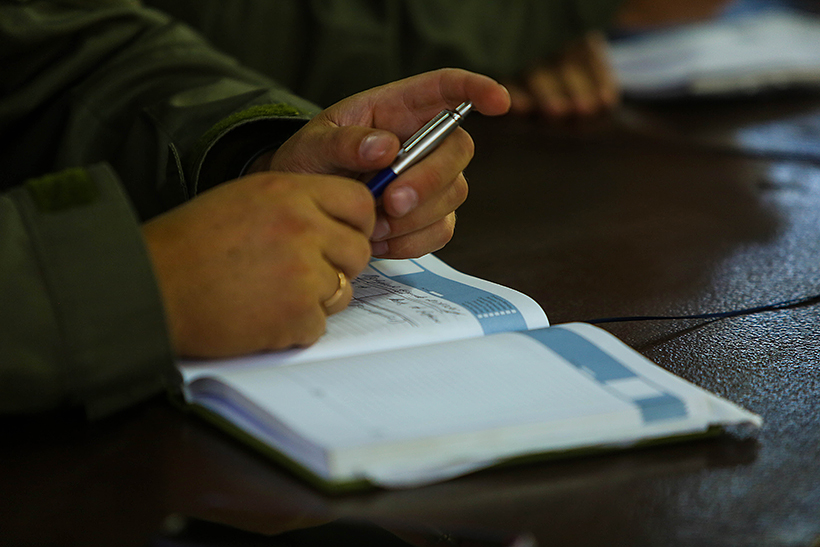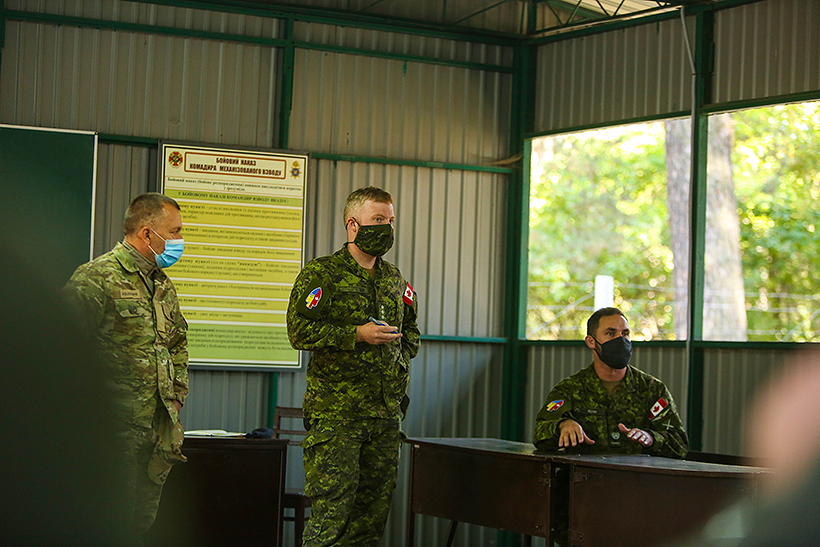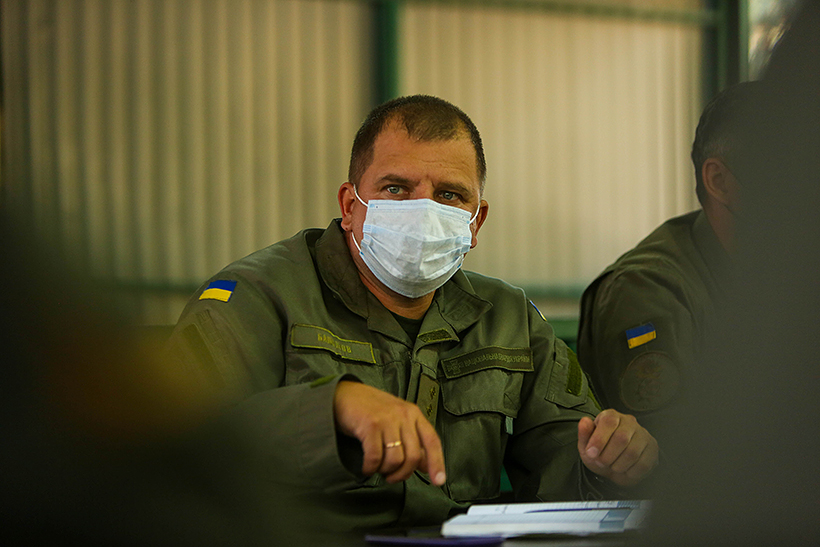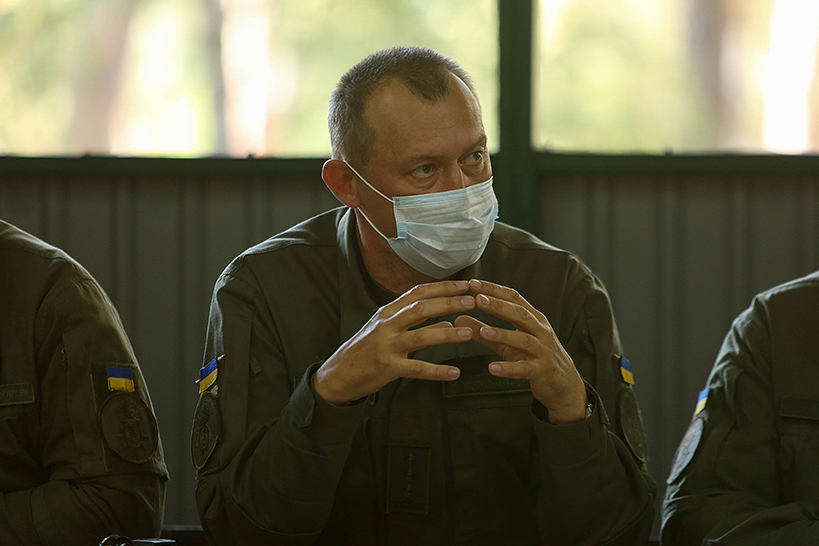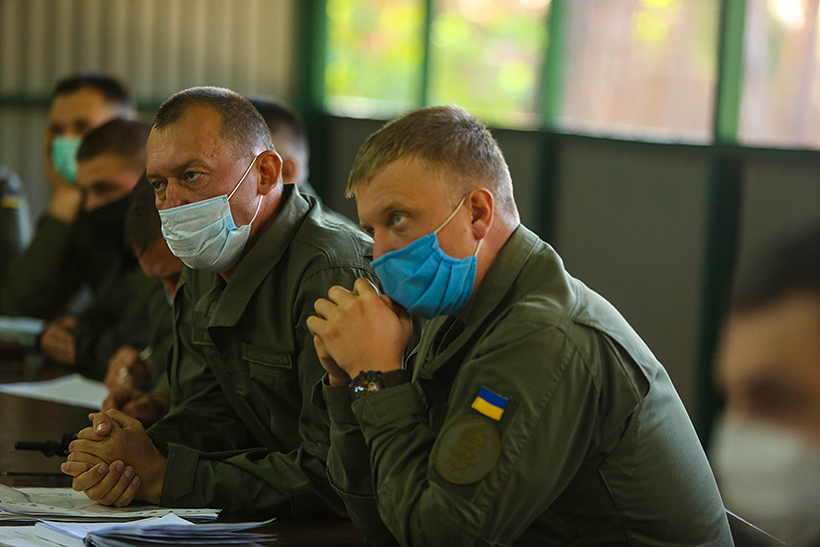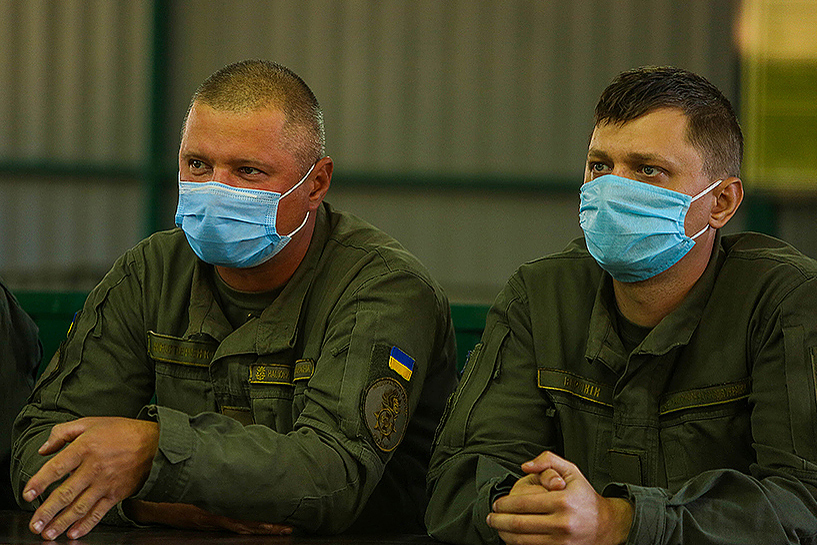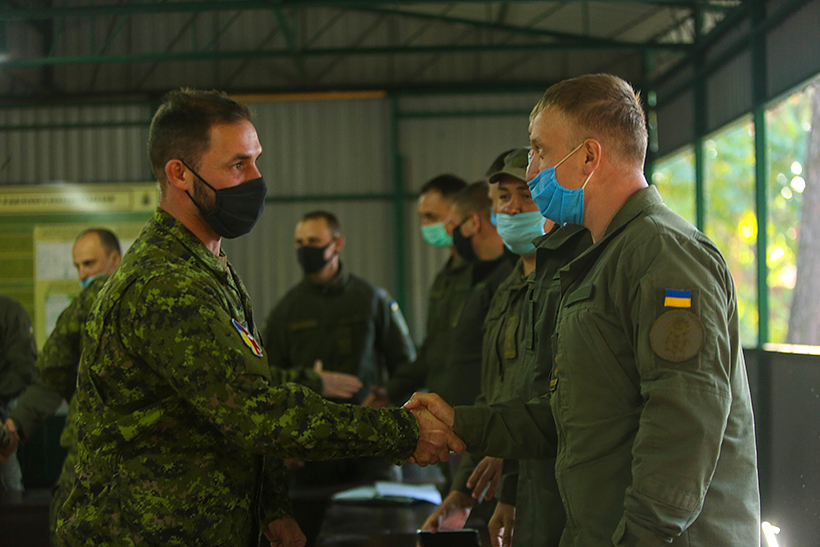Representatives of the Operation UNIFIER summed up the results of the initial military and professional training of cadets
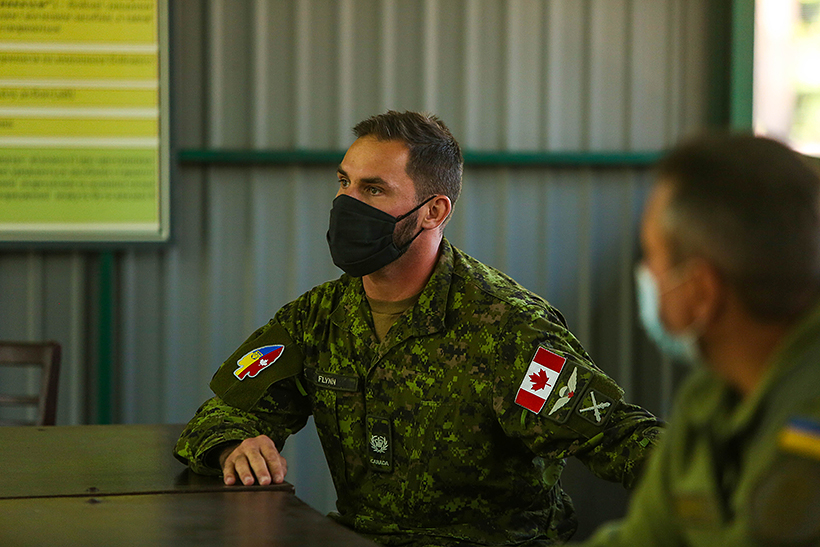
The Canadian Armed Forces Joint Task Force-Ukraine (Op UNIFIER) met with the officers of the National Academy of the National Guard of Ukraine and summed up the training with the first-year cadets of the Academy
For two weeks, the foreign instructors conducted joint trainings and classes together with the instructors of the Academy. They trained freshmen cadets who underwent initial military and professional training.
During the meeting both sides discussed the importance of leadership potential for future cadets of the Academy. A representative of the NGU Training Group of Canadian Armed Forces Joint Task Force-Ukraine told about the system of future officers training in Canada and cited many similar elements.
In addition, he noted that the cadets have a significant motivation to study and have received a high level of training during the month at the training center of the Academy.
"For two weeks, we studied the level of cadets' training and pre-assessed the leadership qualities of future officers. In addition, we provided recommendations on tactical actions and fire training", - said the representative of Operation UNIFIER Captain Daniel Hoyt.
The head of the command and staff faculty Colonel Viacheslav Ovcharenko told foreign representatives about the process of determining leadership qualities of cadets at the Academy.
“We are constantly working on the issue of leadership. In addition, to regular classes and trainings, cadets undergo internship at military units as division commanders, platoon commanders and deputy company commanders. And after graduation from the Academy, they are already formed officer-leader", - said Colonel Viacheslav Ovcharenko.
The visit of the Canadian instructors provided an opportunity to share experience. During the meeting both sides focused on the effectiveness of joint training and bilateral work to improve the training program for future officers.
Department of information and communication and Department of Euro-Atlantic Integration of the NA NGU
